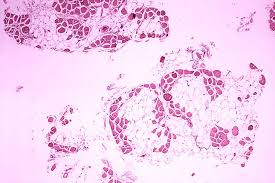28 January 2025 | Tuesday | News

Picture Courtesy | Public Domain
Roche announced positive topline results from year two of the EMBARK trial, a global, randomised, double-blind phase III study of Elevidys™ (delandistrogene moxeparvovec), the first approved gene therapy for the treatment of individuals with Duchenne muscular dystrophy. Two years after treatment with Elevidys, statistically significant and clinically meaningful improvements were observed across three key motor function measures of NSAA, TTR and 10MWR, when compared to a pre-specified propensity-weighted untreated external control group.* Functional differences between individuals treated with Elevidys and those in the external control group increased between one and two years after dosing. Together, these results demonstrate consistent, sustained benefit in favour of Elevidys.
Detailed results from year two of the EMBARK study will be shared at an upcoming medical meeting and discussed with health authorities. One-year data from part one of the EMBARK study were published in Nature Medicine in October 2024.
“After two years of treatment with Elevidys, we are seeing multiple sustained benefits in the day-to-day lives of these young boys, all of which are indicators of its disease modifying potential in Duchenne,” said Levi Garraway, M.D., Ph.D., Roche’s Chief Medical Officer and Head of Global Product Development. "These results, which include improvements in standing, walking and running, represent meaningful progress and we plan to share them with health authorities as quickly as possible.”
Individuals treated in part one of EMBARK (n=63) showed clinically meaningful and statistically significant improvements on the NSAA were sustained two years after treatment with Elevidys.
“As Duchenne progresses, children will lose the ability to walk, have difficulty breathing, and develop heart problems, all of which severely impact their health and ability to fully participate in life,” said Professor Francesco Muntoni, Director of Dubowitz Neuromuscular Centre, Great Ormond Street Hospital for Children, UK. “Encouraging results from year two of the EMBARK trial suggest that with innovative treatments like Elevidys, the period of mobility and independence can potentially be improved, reducing the physical and emotional challenge Duchenne poses for these young boys and their families.”
© 2026 Biopharma Boardroom. All Rights Reserved.